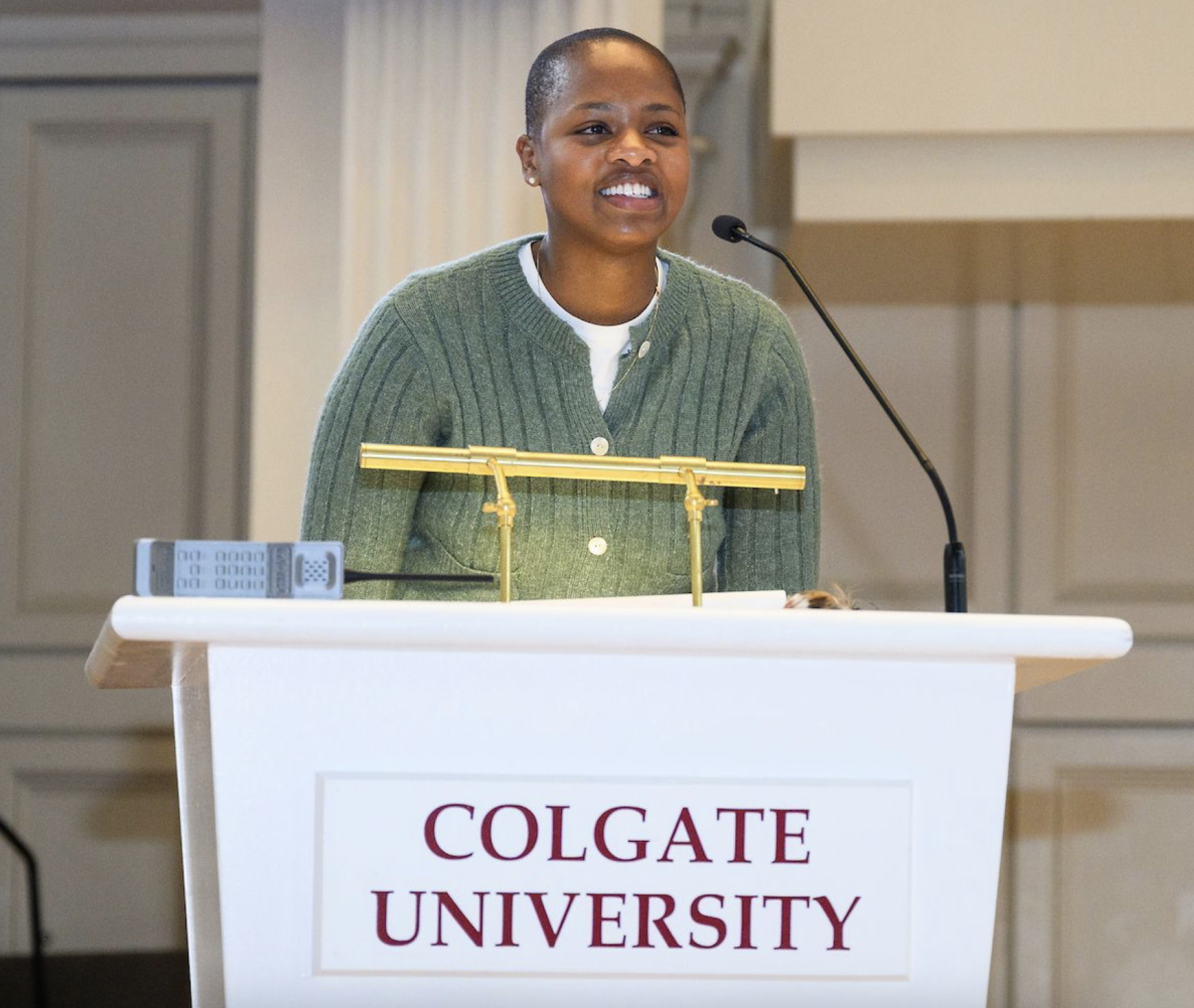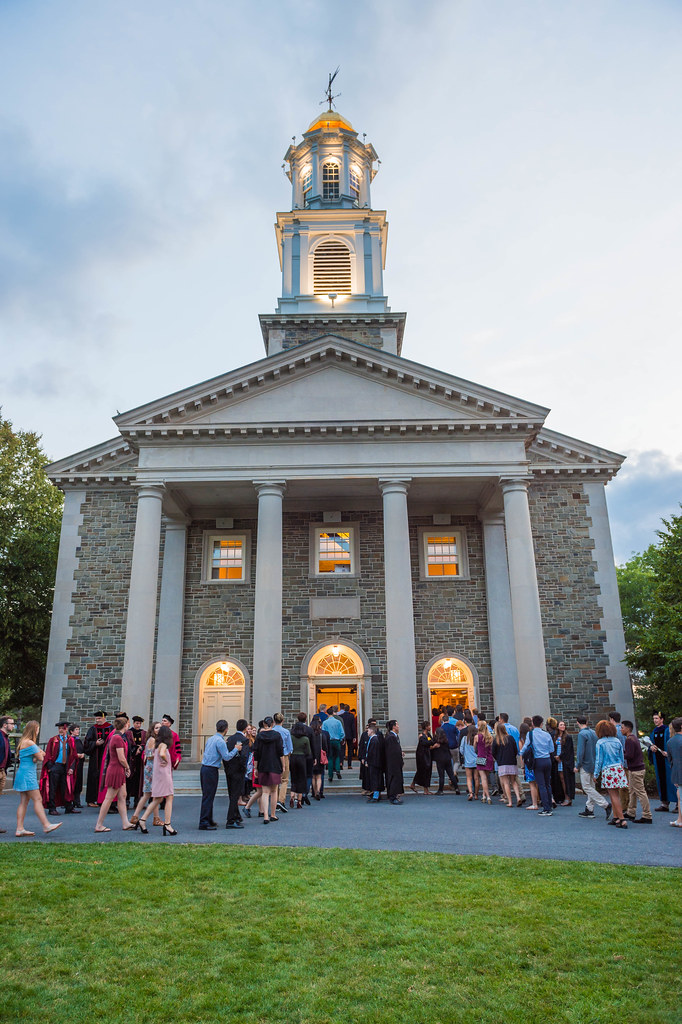If you’ve walked around Colgate University, you’ve likely seen Tabisha Raymond. She is impossible to miss, walking with a sense of purpose and often surrounded by three or four students, her program assistants or just students who are pulled in by her energy and optimism.
Raymond is the assistant director of First@Colgate, but her job title is understating what she actually does. She occupies a corner office on the second floor of Benton Hall, but it feels like more of a cozy gathering space fit with tables and padded chairs. Upon entering Raymond’s office, students feel comfortable and seen — her office is filled with fidget toys and art supplies that offer stressed students the rare chance to relax.
It does not take one more than a couple minutes to realize that Raymond is a special person, especially to those on campus she directly helps. While her specific role involves advocating for first-generation students, she also supports the QuestBridge Scholar Network, lower-income students and anyone who walks through her office door.
Colgate chose the theme “Putting Down Roots” to celebrate First-Gen Week from Nov. 4 to Nov. 8. To Raymond, this message emphasizes the reality of first-generation students’ paths being self-forged and uniquely individual.
“For First@Colgate, we want to celebrate our students and highlight their unique experiences through our opportunities that we provide,” Raymond said. “I think this year it’s a little different because we are trying to be mindful of what’s happening in the world and with the election happening during the same week.”
Raymond and her First@Colgate colleagues believe it is important to maintain awareness of the political climate, especially in terms of the fun and relaxed activities that First@Colgate is hosting this week. These events include First-Gen Night with Colgate Athletics; a faculty, staff and student mixer; community service with the Max A. Shacknai Center for Outreach, Volunteerism and Education (COVE) in Colgate’s community garden and an exciting formal for National First Generation Day on Nov. 8 to conclude the week.
First-generation students typically have to deal with many obstacles, so it is important to recognize and celebrate them on campus. Raymond provided a general idea of some of the issues first-generation students may face: lack of physical support from family, a sense of hyper-independence, challenges navigating legal and medical appointments and a general sense of imposter syndrome. However, she also emphasized that her list was not entirely comprehensive.
“It’s hard to see yourself in these spaces, especially when people don’t look like you,” Raymond explained.
As Colgate continues to support first-generation students, Raymond hopes to figure out a way to provide more financial support for these students, as it is hard to balance a job with academic rigor, and some first-generation students are also providing financial support for their families.
Some students who are not first-generation college students might take First-Gen Week for granted — as with many affinity group events on campus, it can frequently feel as though only students who are affected by the issues addressed are the ones that attend. First-generation students should be admired for their resilience and their capacity to succeed despite not necessarily having the same access to resources as others. First@Colgate also provides support for all QuestBridge scholars, not just those who are first-generation students, as part of their mission to help students who may not otherwise have access to guidance and resources for college life.
Raymond also discussed how Colgate is a unique place. It is less accessible and rural, for example, but Raymond reframed these qualities as motivators for students to seek support through the institution itself.
“We have more targeted outreach and more resources than larger institutions,” Raymond said.
Raymond appreciates that Colgate sends out course requirement check-ins, which wasn’t something she experienced at her alma mater. Her own experience as a first-generation student was also a huge influence for her work, and even though the institution she attended is much bigger than Colgate, she still felt supported there in a manner that helped her succeed. Perhaps this experience is why she adds a comforting quality to her interactions with students, especially first-generation ones, because she knows what it feels like to be in their shoes.



















